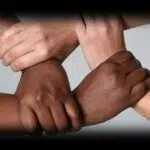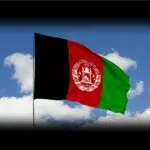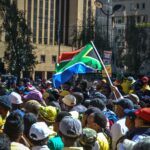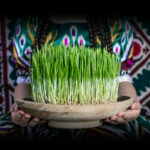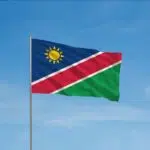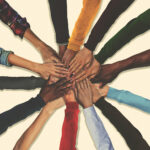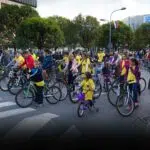The Week of Solidarity with the Peoples Struggling Against Racism and Racial Discrimination is observed annually from March 21 to 27. It opposes human rights violations, all forms of injustice, and racial discrimination heaped upon people. The week-long holiday shows the importance of striving toward racial equality in all nations around the world.
History of Week of Solidarity with the Peoples Struggling against Racism and Racial Discrimination
In 1979, the U.N. General Assembly adopted a program of measures to be implemented during the second half of the Decade to Combat Racism and Racial Discrimination. To mark this occasion, the General Assembly decided that a Week of Solidarity with Peoples Struggling Against Racism and Racial Discrimination, starting on March 21, would be held annually in all states.
Since then, the apartheid system in South Africa has been disassembled, racist laws and practices have been repealed in many countries, and we have established an international framework to combat racism following the International Convention on the Elimination of Racial Discrimination. The Convention is now approaching universal ratification, but too many people, communities, and societies in all regions still suffer from the injustices and stigma that racism brings.
The General Assembly repeats that all human beings are born free, have equal rights, and have the potential to contribute constructively to the development and well-being of their society. In its latest resolution, the General Assembly also focuses on the fact that any doctrine of racial superiority is scientifically flawed, morally condemned, socially unjust, dangerous, and must be rejected along with theories that attempt to define the existence of individual human races.
The United Nations has been concerned about this issue since the beginning, and the prohibition of racial discrimination is enshrined in all fundamental international human rights instruments. The principle of equality also requires states to take special initiatives to eliminate conditions that cause or contribute to the continuation of racial discrimination. One of those initiatives is the Week of Solidarity with Peoples Struggling Against Racism and Racial Discrimination.
Week of Solidarity with the Peoples Struggling against Racism and Racial Discrimination timeline
The World Conference Against Racism produces the most authoritative and comprehensive program for fighting racism and racial discrimination.
The conference resumes the international commitment to the anti-racism agenda.
The General Assembly dedicates the decade to people with African origins.
The United Nations General Assembly brings together world leaders for a one-day meeting in New York on the 20th anniversary of the Durban Declaration and Program of Action.
Week of Solidarity with the Peoples Struggling against Racism and Racial Discrimination FAQs
Why are people racist?
People aren’t born racist; they are made into who they are through nurture.
What is racism?
Racism takes many forms and can occur in many places. It includes prejudice, discrimination, or hatred directed at someone because of color, ethnicity, or nationality.
Where can discrimination occur in the workplace?
Discrimination can occur before recruitment, during employment, or after dismissal.
How to Observe Week of Solidarity with the Peoples Struggling against Racism and Racial Discrimination
Fight racism
Everyone can stand up against racial prejudice and intolerance. So, uphold the rights given to all human beings during the week-long holiday and become a human rights champion.
Show your support
Observe the Week of Solidarity with the Peoples Struggling Against Racism and Racial Discrimination by sharing a supportive picture or video on social media. Add hashtags and captions like “I Stand Up to Racism.”
Volunteer with UNESCO
We all can do something to stop racism. UNESCO has led the fight against racism since 1945. You can volunteer with UNESCO and fight against racism.
5 Facts About South Africa That Will Blow Your Mind
It has 11 official languages
The country has 11 official languages, such as Afrikaans, Xhosa, English, Tswana, Venda, Swati, Tsonga, and more.
It has 10 UNESCO World Heritage sites
Some World Heritage sites include the Mapungubwe Cultural Landscape, the Richtersveld Cultural and Botanical Landscape, and the Khomani Cultural Landscape.
It has three capital cities
Pretoria, Cape Town, and Bloemfontein are the three capital cities of South Africa.
The first human heart transplant
The operation was conducted in Cape Town in 1967.
The world’s largest known diamond
A sign of the country’s rich natural resources, the world’s largest diamond was discovered in 1905 at the Premier Mine near Pretoria.
Why Week of Solidarity with the Peoples Struggling against Racism and Racial Discrimination is Important
It condemns racism and racial discrimination
Everyone has their rights, and no one has the right to take them away. During the Week of Solidarity with the Peoples Struggling Against Racism and Racial Discrimination, we oppose any action that supports an unjust system and destroys the structure of civil and peaceful society.
It expresses our support
By participating in the week-long holiday, we show that anyone struggling against racism hasn’t been abandoned. We also indicate that we care about their rights and their lives.
It helps us stand for what’s right
People struggling against racism and discrimination have a hard road to walk. But we can stand with them during and after the week-long holiday to express our support for them.
Week of Solidarity with the Peoples Struggling against Racism and Racial Discrimination dates
| Year | Date | Day |
|---|---|---|
| 2026 | March 21–27 | Saturday–Friday |
| 2027 | March 21–27 | Sunday–Saturday |
| 2028 | March 21–27 | Tuesday–Monday |
| 2029 | March 21–27 | Wednesday–Tuesday |
| 2030 | March 21–27 | Thursday–Wednesday |




